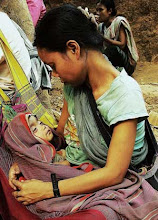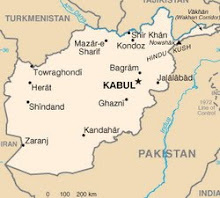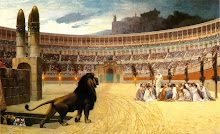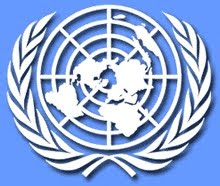 ISTANBUL(Compass Direct News)Prosecutor General Abdel Meguid Mahmoud last week granted the mother of 14-year-old twins Andrew and Mario Medhat Ramses the right to appeal a custody decision awarding her sons to their Muslim father.Muslim convert Medhat Ramses Labib gained custody of the boys last September, contrary to Article 20 of Egypt’s Personal Status Law, which states children should remain with their mother until age 15. The boys’ mother, Kamilia Lotfy Gaballah, won the right to appeal on Feb. 11.“We all have a little bit of hope, new hope,” said George Ramses, the twins’ older brother. “Of course, they are a little afraid about everything, but generally they are excited.” With support from the Egyptian Initiative for Personal Rights (EIPR), Gaballah will appeal the Family Court’s decision awarding custody to the father before the Court of Cassation. Family Court decisions are not usually given recourse to the Court of Cassation, one of Egypt’s highest courts, and require special referral from a public prosecutor.EIPR Director Hossam Bahgat stressed that the Court of Cassation will be examining the law on which the decision was based, not the decision itself.
ISTANBUL(Compass Direct News)Prosecutor General Abdel Meguid Mahmoud last week granted the mother of 14-year-old twins Andrew and Mario Medhat Ramses the right to appeal a custody decision awarding her sons to their Muslim father.Muslim convert Medhat Ramses Labib gained custody of the boys last September, contrary to Article 20 of Egypt’s Personal Status Law, which states children should remain with their mother until age 15. The boys’ mother, Kamilia Lotfy Gaballah, won the right to appeal on Feb. 11.“We all have a little bit of hope, new hope,” said George Ramses, the twins’ older brother. “Of course, they are a little afraid about everything, but generally they are excited.” With support from the Egyptian Initiative for Personal Rights (EIPR), Gaballah will appeal the Family Court’s decision awarding custody to the father before the Court of Cassation. Family Court decisions are not usually given recourse to the Court of Cassation, one of Egypt’s highest courts, and require special referral from a public prosecutor.EIPR Director Hossam Bahgat stressed that the Court of Cassation will be examining the law on which the decision was based, not the decision itself.“The Court of Cassation will pronounce a decision on the legal rule that Christian children, when one of their parents converts to Islam, should be automatically moved to the Muslim parent’s custody,” he said. “So it is very important in terms of changing the legal rule, but according to the law it will not have a direct impact on Andrew and Mario themselves.”Preliminary hearings are scheduled to begin on March 2.The twins will celebrate their 15th birthday in June of this year. At 15, Egyptian children of divorcees have the legal right to choose which parent they want to live with. Ramses told Compass that he is skeptical about whether his brothers will be given this right.“The whole law is that kids should spend the first 15 years with their mum, and then they get to choose who they want to live with,” Ramses said.“Choosing is the second part of the rule that was not applied to us, so we don’t know actually what will be the case.”The boys’ father, Labib, converted to Islam in 1999 after divorcing Gaballah to marry another woman. In 2006 Labib altered the official religious status of the boys and later applied for custody.
Covenant Breaches
The boys are now at the center of two separate disputes, both of which have roots in the complex interaction between Islamic and secular law in Egypt: whether children should be automatically awarded to the Muslim parent, and whether they therefore should automatically convert to Islam.Custody battles between Muslim fathers and Christian mothers have typically been instances where Islamic law has predominated over secular legislation. Sharia (Islamic law), which the Egyptian constitution declares as being the source of law, states that a non-Muslim should not have authority over a Muslim.In the case of Andrew and Mario, this sharia provision meant that they should not be left under the jurisdiction of their non-Muslim mother. The automatic and compulsory conversion of the twins, following their father’s decision to become Muslim, is the second area of contention EIPR is working on behalf of Gaballah to resolve.The issue once again shows the contradictory stances of Egyptian civil law, which reflects both freedom of religion and Islamic thought. A fatwa (religious edict) issued by Egypt’s Grand Mufti, Ali Gomaa, regarding the case of Andrew and Mario states, “The religion of the two children should follow their Muslim father’s, unless they change their religion with full will after puberty.”Although this statement allows Andrew and Mario the right to choose their religion “after puberty,” conversion from Islam is not only extremely difficult in Egypt but also dangerous.Egypt has ratified a number of human rights treaties allowing advocacy groups like EIPR recourse to international watchdogs and advisory bodies.One of these, the African Commission on Human and Peoples Rights (ACHPR), has agreed to examine the case.The commission has asked both parties to submit written statements by March in preparation for an initial hearing in May.The European Union of Coptic Organisations for Human Rights (EUCOHR) has also weighed in, petitioning the European Parliament for help.“We have gone to the European Parliament with a legal document detailing about 30 to 40 breaches of international covenants like the International Declaration of Human Rights,” said Ibrahim Habib, vice-chairman of EUCOHR.Habib said he hopes involving international bodies such as these will raise the profile of the case and put pressure on the Egyptian judiciary to rule impartially. Such attention could also have positive implications for the much harassed Coptic community at large.The report filed by EUCOHR and the U. S. Coptic Foundation for Legal Assistance, which explores violations of such pacts as the Convention on the Elimination of All Forms of Discrimination against Women and the International Covenant on Civil and Political Rights, ends with this statement:“This is a call for justice and to save the two children from the coercion, persecution and injustice with which they are overburdened and, it is respectfully requested that a prompt action be taken to save those children and their future. Also, the annulment of the judgements against the two children is promptly requested.”
As in the days of Noah...


























.bmp)
No comments:
Post a Comment